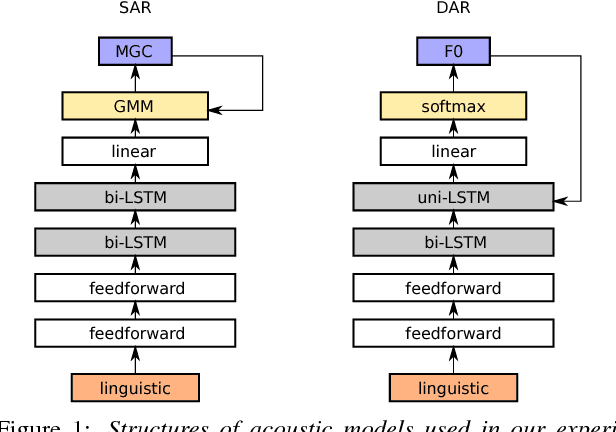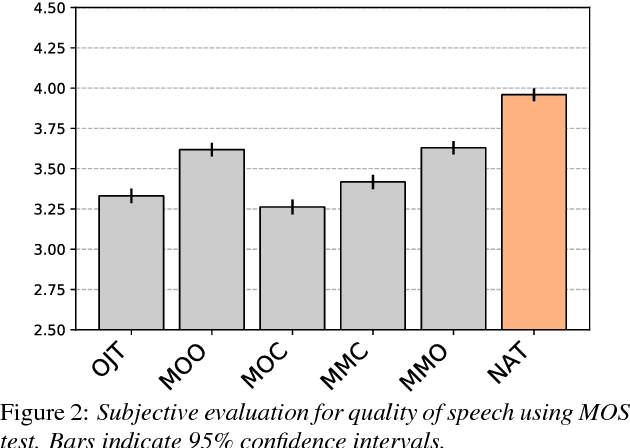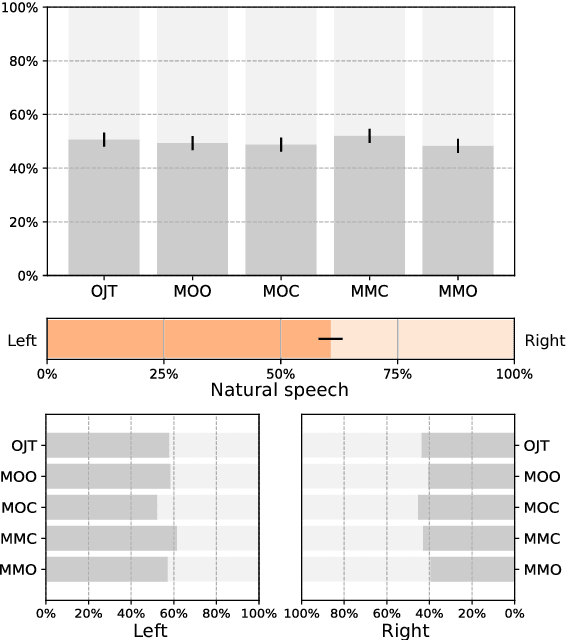Investigating accuracy of pitch-accent annotations in neural network-based speech synthesis and denoising effects
Paper and Code
Aug 02, 2018



We investigated the impact of noisy linguistic features on the performance of a Japanese speech synthesis system based on neural network that uses WaveNet vocoder. We compared an ideal system that uses manually corrected linguistic features including phoneme and prosodic information in training and test sets against a few other systems that use corrupted linguistic features. Both subjective and objective results demonstrate that corrupted linguistic features, especially those in the test set, affected the ideal system's performance significantly in a statistical sense due to a mismatched condition between the training and test sets. Interestingly, while an utterance-level Turing test showed that listeners had a difficult time differentiating synthetic speech from natural speech, it further indicated that adding noise to the linguistic features in the training set can partially reduce the effect of the mismatch, regularize the model, and help the system perform better when linguistic features of the test set are noisy.
 Add to Chrome
Add to Chrome Add to Firefox
Add to Firefox Add to Edge
Add to Edge